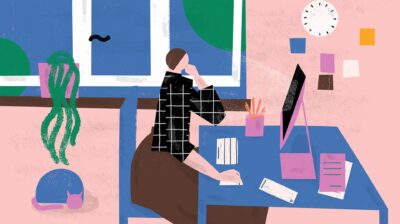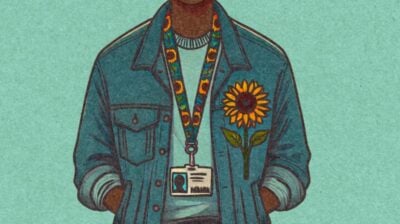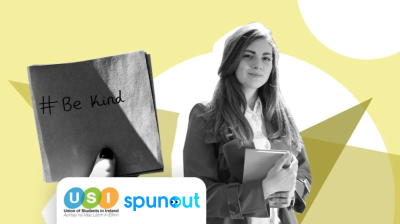College supports for students with disabilities
Your college will have support available, and organisations like AHEAD are there to answer any questions

Entering college can be a daunting enough experience for any young person, but those with disabilities may have extra concerns about this next step.
Everyone has a right to education, and there are a number of programmes and supports in place that aim to help students with disabilities have access to their third-level education. This includes assisting students to get into college through the DARE scheme, providing disability and access officers, and finding ways to make college life easier for those who need the extra support.
There are also organisations such as AHEAD (Association for Higher Education Access and Disability) who advocate for and provide information to students with disabilities, people thinking of applying to college, and those who have graduated.
Who are the disability supports for?
The disability supports available in universities and colleges are there to offer additional help to students with a disability, including conditions such as:
- Hard of hearing
- Blind/partially sighted
- Impaired mobility
- Learning difficulties
- Ongoing illnesses
You are entitled to access supports if you have a disability even if you did not access college through the DARE scheme.
Speaking to the disability or access officer
All universities and colleges have someone who is responsible for support of students with disabilities. They are usually called a disability or access officer. Make sure to speak to this person and let them know if there’s anything specific you need (like educational materials, recorders, print outs of lectures or wheelchair access) or any facilities you’re not happy with.
The disability or access officer will be your go-to person within the college to discuss any concerns you have regarding your disability and education. Every college is different, so it’s a good idea to have a conversation with them and find out exactly what supports are available so that you can make the most of your time there. You could also ask the Students’ Union is there are any clubs or societies for students with disabilities, or consider starting one yourself.
Asking for additional support
There are a few reasons why you might want to ask for additional support. Below are some examples of what you might ask for:
Permission to record lectures
If you have dyslexia, hearing difficulties or sight difficulties, you can ask for permission to record classes or ask the teacher/ lecturer for printed notes. Some universities and colleges can also provide a recorder for you to use during the year.
Accessible classrooms or lecture halls
If you are a wheelchair user or have mobility problems then you should contact the school, university or college to make sure that all classes and facilities (including sports) are accessible to you.
Assistants
Some universities and colleges may be able to provide an assistant who can come to lectures with you and takes notes if you are unable to take notes yourself.
Exam support
Supports might also include extra time for exams, having the examiner read the questions to you, or taking exams in a private room and having an examiner scribe for you.
Accommodation
Some universities and colleges provide accessible accommodation. Speak to the disability or access officer to find out more about your options.
Contacting AHEAD (Association for Higher Education Access and Disability)
AHEAD (Association for Higher Education Access and Disability) are here to help. AHEAD are an independent, not-for-profit organisation that works to promote information about, and access to, disability services for students involved in higher education.
Because there is no centralised disability service for all of the different universities and colleges, it can be difficult to find out the specific supports available on your campus. AHEAD works with individual institutions in order to find out what’s on offer for students. They should be able to give you information on your specific college and the supports available to you.
Information on AHEAD.ie
The website AHEAD.ie provides invaluable information on areas such as:
- Assistive technology
- Classroom assistance
- Exam supports
- Interpreting
- Alternative textbooks
- Dictation
- Priority registration
- Disabled access
- Medical aid
Support when applying to colleges
AHEAD also provides information on assisted entry routes to higher education through the DARE scheme. Remember, even if you didn’t get your place using the DARE system, you can still choose to use the support networks within your institution.
After college
AHEAD also offers information and advice for graduates on how to find a job, and what supports they’re entitled to expect in the workplace. Training and mentoring schemes are offered for participating educational establishments and disability service users.
For more information, visit the AHEAD website.
Need more information, advice or guidance?
We offer information, advice and guidance about the issues that matter to you. Our online Youth Information Chat service is for 16 to 25 year olds and is available Monday to Friday, 4pm to 8pm (excluding Bank Holidays).






